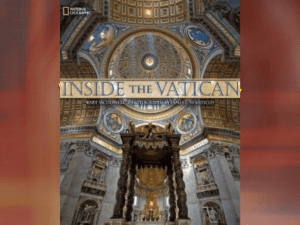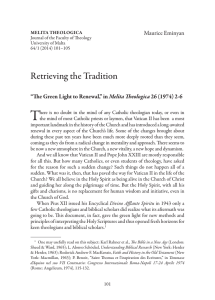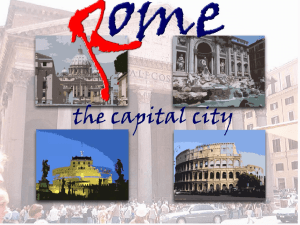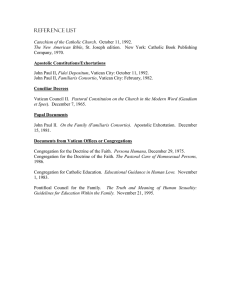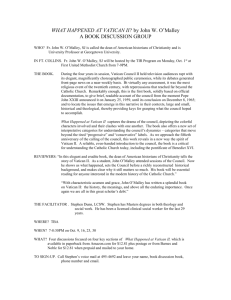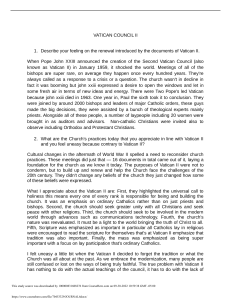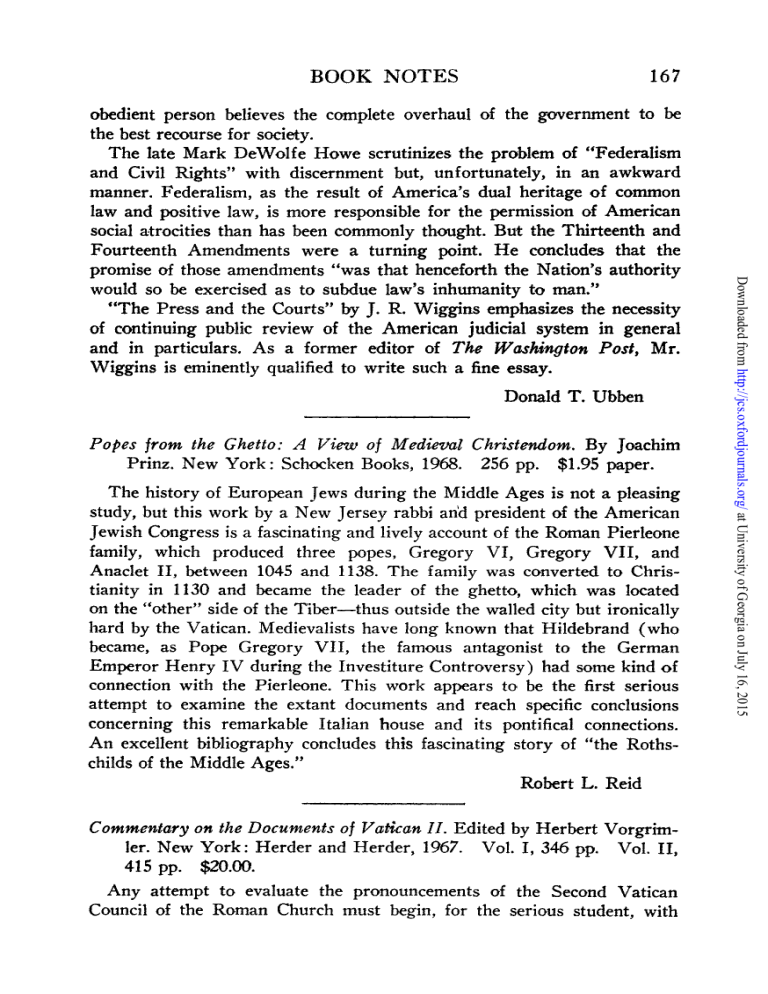
167 BOOK NOTES Donald T. Ubben Popes from the Ghetto: A Viet!' of Medieval Christendom. By Joachim Prinz. New York: Schocken Books, 1968. 256 pp. $1.95 paper. The history of European Jews during the Middle Ages is not a pleasing study, but this work by aNew Jersey rabbi ana president of the American Jewish Congress is a fascinating and lively account of the Roman Pierleone family, which produced three popes, Gregory VI, Gregory VII, and Anaclet II, between 1045 and 1138. The family was converted to Christianity in 1130 and became the leader of the ghetto, which was located on the "other" side of the Tiber-thus outside the walled city but ironically hard by the Vatican. Medievalists have long known that Hildebrand (who became, as Pope Gregory VII, the famous antagonist to the German Emperor Henry IV during the Investiture Controversy) had some kind of connection with the Pierleone. This work appears to be the first serious attempt to examine the extant documents and reach specific conclusions concerning this remarkable Italian house and its pontifical connections. An excellent bibliography concludes this fascinating story of "the Rothschilds of the Middle Ages." Robert L. Reid Commentary on the Documents of Vatican II. Edited by Herbert Vorgrimler. New York: Herder and Herder, 1967. Vol. I, 346 pp. Vol. II, 415 pp. $20.00. Any attempt to evaluate the pronouncements of the Second Vatican Council of the Roman Church must begin, for the serious student, with Downloaded from http://jcs.oxfordjournals.org/ at University of Georgia on July 16, 2015 obedient person believes the complete overhaul of the government to be the best recourse for society. The late Mark DeWolfe Howe scrutinizes the problem of "Federalism and Civil Rights" with discernment but, unfortunately, in an awkward manner. Federalism, as the result of America's dual heritage of common law and positive law, is more responsible for the permission of American social atrocities than has been commonly thought. But the Thirteenth and Fourteenth Amendments were a turning point. He concludes that the promise of those amendments "was that henceforth the Nation's authority would so be exercised as to subdue law's inhumanity to man." "The Press and the Courts" by J. R. Wiggins emphasizes the necessity of continuing public review of the American judicial system in general and in particulars. As a former editor of The Washington Post, Mr. Wiggins is eminently qualified to write such a fine essay. 168 CHURCH AND STATE Robert L. Reid Lost Fatherland. By John B. Toews. Scottdale, Pa.: Herald Press, 1967. 262 pp. $6.95. This is the twelfth book in Studies in Anabaptist and Mennonite History. It is the story of the Mennonite emigration from Soviet Russia, 1921-1927, by the historian son of parent emigres. It has an informative table of contents, impressive photographic illustrations, generous footnotes, and a thorough bibliography. The book is another account of the stupid upheavals and barbarities which attend vengeful revolutions, which accompany man's inhumanity to other men because of those religious convictions and social practices which are considered to be a threat to certain political and economic ideologies. Ethnic patterns and relationships accentuated the suspicions and retaliations that stalked in the wake of war. Simple biblical faith and a prosperous agrarian economy were inadequate defenses against the "red horse" and the "pale horse" that wasted a minority group. But there was the will to survive and the heroic perseverance to preserve a remnant and begin again in Canada. and in America. P. D. Browne Downloaded from http://jcs.oxfordjournals.org/ at University of Georgia on July 16, 2015 a reading of the various decrees and constitutions adopted by the Conciliar memhers and approved by Pope Paul VI. These two volumes (of a projected five volume study) are in the nature of explanations rather than critical interpretations of the first eight Decrees of the Council: "The Sacred Liturgy," "The Instruments of Social Communication," "Dogmatic Constitution on the Church," "Eastern Catholic Churches," "Ecurnenisrn," "The Bishops' Pastoral Office in the Church," "The Appropriate Renewal of the Religious Life," and "Priestly Formation." The impressive list of editors and authors of the project include Augustin Cardinal Bea, Gerard Philips, Josef Andreas Jungmann, Karl Rahner, Ferdinand Klostenmann, and Joseph Ratginger, "all closely connected with the Council." The same publishers have issued (in English translation) The Documents of Vatican II (New York, 1966)-essential for a careful evaluation of the Commentary.
